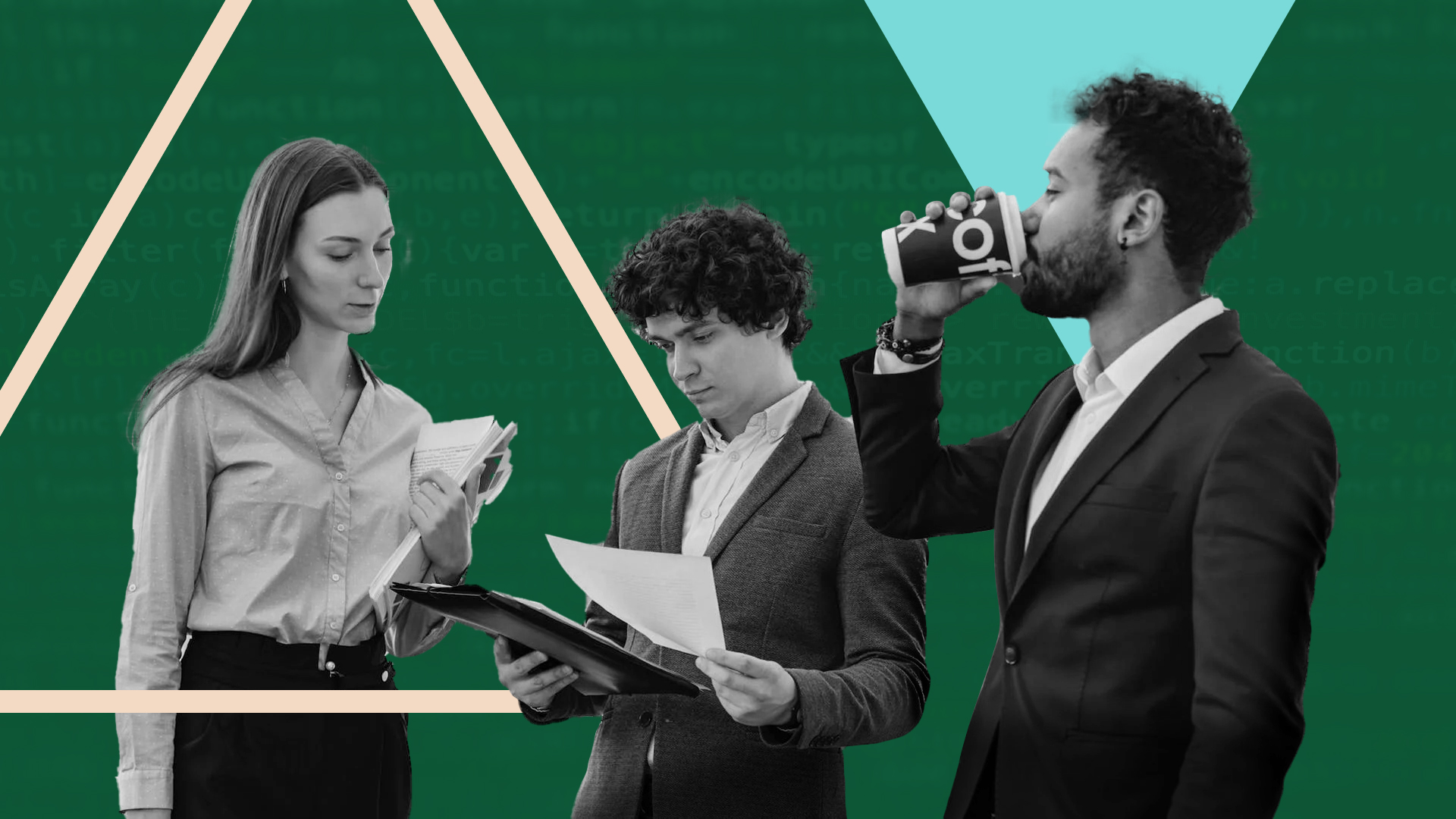There is a lot of talk about AI and its impact on the legal profession. Some say that AI will soon take over the work that lawyers do, forcing them to switch focus to tasks not as easily handled by a machine. Others claim that AI is nothing more than hype, and that it cannot really do anything to help lawyers or legal workers. So what is the truth?
In this blog post, we will set realistic expectations for AI in the legal world and debunk some of the myths around it. We will also show how AnyLawyer is using recent developments in AI software to create the best legal assistant on the market.
Recent development in AI technology
AI solutions are capable of performing tasks that require near human intelligence. They understand the meaning of words, are capable of understanding context and nuance, and can make decisions. AI solutions help professionals in various fields by automating mundane tasks and giving them more time to focus on their core work.
Innovation in the field of AI research and technology has been quite impressive lately. Take for example ChatGPT, a software suite developed by OpenAI that can pass the bar exam with flying colors. This achievement marked a milestone for AI and legal technology, as it proved that AI can be used to automate legal research, document review, and other tasks integral to the legal profession.
What is ChatGPT?
ChatGPT works like a chat bot, using conversational language to communicate with users - and to great effect. This shows that AI is no longer just a buzzword - it is an actual tool that can be used to great effect in legal work and other areas.
Examples of tasks that ChatGPT excels at
- Helping software developers write and test code,
- Acting as a sophisticated search engine and research partner,
- Creating written content, from marketing copy to poetry.
The limits of modern AI solutions
However, the AI system is not omnipotent. It is a new technology, which means that it makes errors, both in the content and code it provides. Because it responds to conversational user prompts and does its best to understand a wider context, it can misunderstand the tasks it is given. For example, when asked to provide the lyrics of a song, it might write its own version instead of searching for the original.
Another limitation of ChatGPT is that it has been trained on data collected until 2021. In other words, it has no knowledge of what has been going on since then. This can be a non-issue in some cases, and a huge problem in others. For example, legal professionals are not advised to trust that ChatGPT has access to more recent legislative developments.
Finally, no AI system can think critically the way a human brain does. Some problems and multi-step questions are simply too complex for solutions like ChatGPT. For example, any advice the chatbot offers is not based on the specific situation the user is in, but on the prompt given, the state of the world two years ago, and information available online.
ChatGPT paves the way for legal AI software
The limitations of ChatGPT explained above make it a poor AI lawyer. However, the hype is not misplaced. ChatGPT is simply one among many interesting AI tools and solutions tailored for specific industries. It is a stepping stone in AI technology, and it provides the legal industry with valuable insights that can be used to create better legal AI tech.
For example, AnyLawyer's team uses ChatGPT as the temporary engine under the hood of our own tool. We are learning from existing solutions while building the AI for legal professionals that we would like to use ourselves. AnyLawyer is now in its beta phase, and it promises to provide legal professionals with an AI-assisted experience that will help them complete everyday tasks more efficiently and stay up-to-date on information relevant to their practice.
The new way to practice law
AI solutions are already beginning to have an impact in the legal industry, both in terms of cost savings and efficiency. With access to large amounts of legal data, AI systems can quickly search for relevant documents and cases that would otherwise take a lawyer days or even weeks to find.
In addition, AI solutions can take on mundane tasks such as document review and drafting contracts with a speed and accuracy that a human cannot match. This allows lawyers to focus their time and energy on more complex legal work.
The use of AI in legal services - the future of the industry, or a fad?
AI for legal services is both a hot topic and an exciting opportunity. Its ability to speed up mundane tasks such as document analysis and research is unparalleled. At the same time, it cannot yet replace human judgment entirely or even provide 100% reliable advice on complex questions.
One important thing to consider is whether measuring AI systems against humans in an AI vs lawyer fashion is a productive approach. What point of comparison should we use? If we try to prove that an AI lawyer can be better, how do we define this superiority? Do we use the speed of completing tasks? The degree of accuracy? The ability to offer highly personalized advice to various kinds of people, and do so with empathy?
It is obvious that it is impossible for either side to win this type of contest. Though AI will excel in some areas, it will perform worse than people in others, and vice versa.
What legal tech can do today
Although legal AI is unlikely to take up lawyering on its own, it can perform numerous tasks to support human lawyers. For the most part, it can handle the repetitive work that requires precision and speed.
Contract review and writing
AI can proofread documents more quickly than a human. It can also generate standard contracts with clauses tailored to the specific needs of each client. If it is deployed in an effective manner, an AI legal tool could vastly improve a company's contracting process.
Document analysis
AI can scan huge amounts of documents to find relevant information, such as specific terms and conditions. It can also identify patterns in legal documents that would normally take an experienced lawyer considerable time and effort to spot.
Document customization
AI can quickly customize documents based on specific needs. It can scan a document and identify which parts need to be altered, then quickly fill in the required information. This saves lawyers considerable time when drafting contracts and other legal documents.
Legal research
AI can search for legal precedents and relevant case law quickly and accurately. This can be a big help to lawyers who are short on time or lack the necessary expertise.
Reports on new legislation
AI systems can be trained to monitor new legislation and provide timely reports on any changes. This can give lawyers a head start in understanding the implications of new laws and regulations.
Where an AI for lawyers might struggle
There are also several areas specific to practicing law that pose a challenge for legal AI solutions.
Accuracy and staying up-to-date
AI tools for lawyers often make mistakes when it comes to legal documents. They may not be able to detect subtle nuances in casual language or stumble over legalese. They may also fail to take into account changes in legislation. Finally, AI - trained on a certain set of data - can have difficulty identifying and dealing with legal concepts that are specific to a certain region or country.
Training a legal AI
Preparing an AI tool to generate accurate and up-to-date legal documents is no easy task. At AnyLawyer, we are focused on providing top quality training data to our legal assistant. We are using custom-built deep learning technology, as well as thousands of contracts and other legal texts, to achieve high reliability and ease of use.
Our training techniques include:
- Unsupervised learning - to analyze large amounts of text, quickly and accurately
- Transfer learning - to benefit from existing models as a base for more complex tasks
- Reinforcement learning - to teach the AI how to respond in different legal scenarios
- Supervised learning - to help the AI identify legal concepts and generate documents
Crucially, no legal AI should rely on keywords. It must understand legal concepts regardless of the precise phrasing.
Is there an AI for legal professionals?
One recent example of AI for legal professionals is ChatGPT – an AI-powered natural language processing (NLP) system that can pass the bar. It was created to help lawyers and legal professionals write faster, better quality documents. By using a sophisticated combination of machine learning and deep learning techniques, it can accurately generate complex legal documents in a fraction of the time it would take a human.
AnyLawyer is also leveraging AI to create the best legal assistant on the market. We use cutting-edge technologies such as machine learning, natural language processing, and text analytics to help lawyers and legal professionals get their work done faster and more efficiently. Our AI assistant can suggest relevant cases and legal documents to help lawyers save time, effort, and money.
AnyLawyer - reliable legal AI software
At AnyLawyer, we believe that AI should be used to supplement human efforts, not replace them. We are actively exploring ways to use AI in a responsible manner, without sacrificing the quality of legal advice and service. In this way, we can make sure that AI assists legal professionals in their pursuit to provide the best possible services for their clients.
Ultimately, it is clear that AI has the potential to revolutionize legal services. However, this transformation is only going to happen if firms and individuals use it responsibly. This will ensure that legal advice remains accurate and reliable.
Artificial intelligence for law firms
In conclusion, AI is a powerful tool that can be used by legal professionals to automate mundane tasks and help them work smarter. However, it is important to remember that AI legal assistants must be monitored closely and used responsibly. While they can achieve incredibly high accuracy at tasks such as contract analysis, more complex, multi-step processes are beyond their scope.
At AnyLawyer, we are continuously working towards creating an AI assistant that can help lawyers stay on top of their practice while ensuring quality service for their clients. By using ChatGPT as a stepping stone and bridging the gap between AI hype and reality, we are confident that this goal can be achieved.




